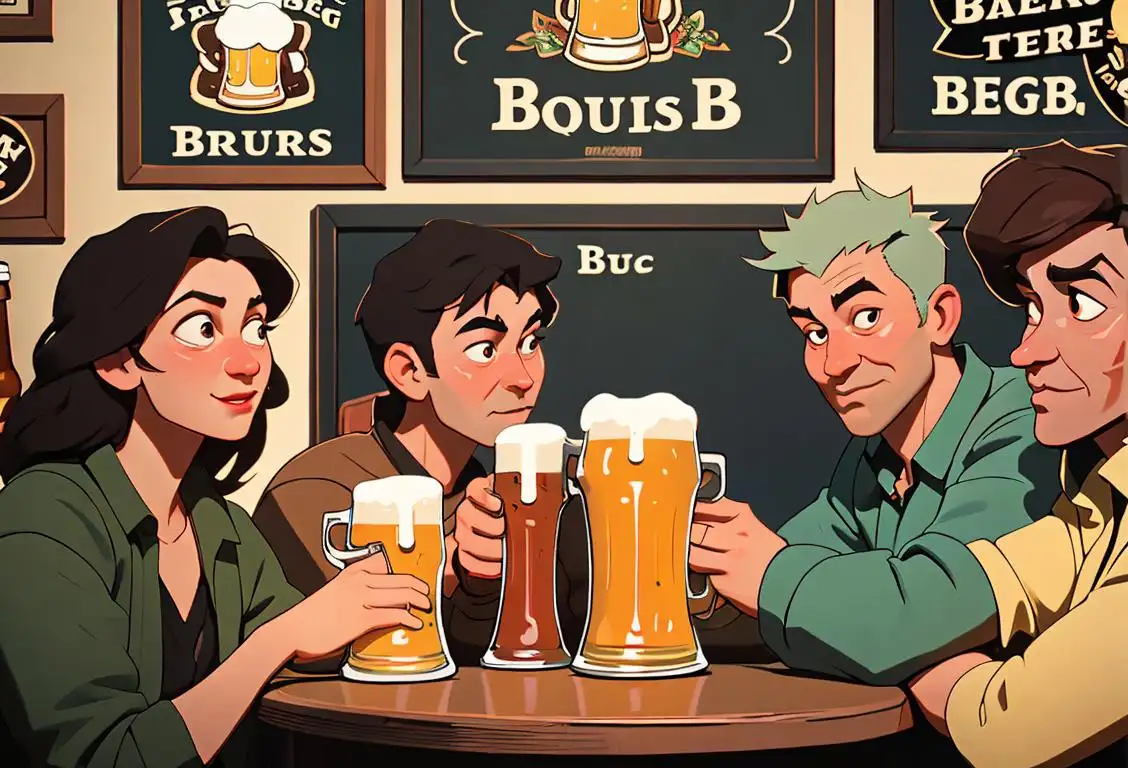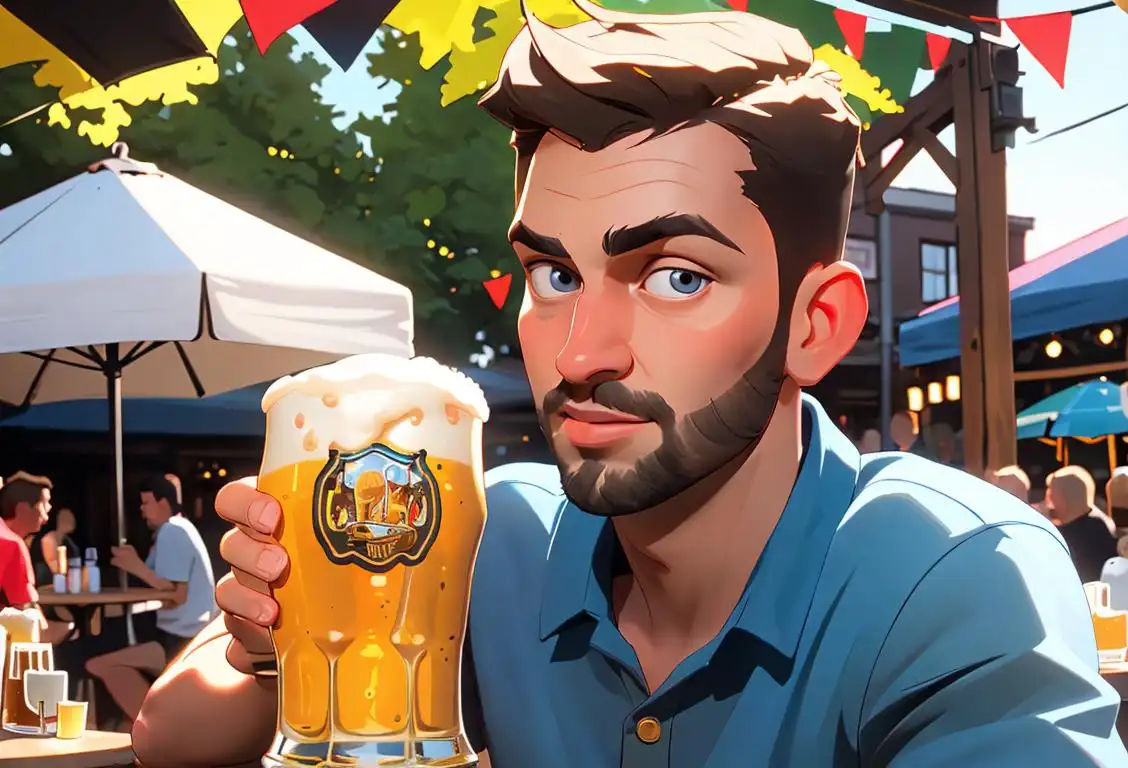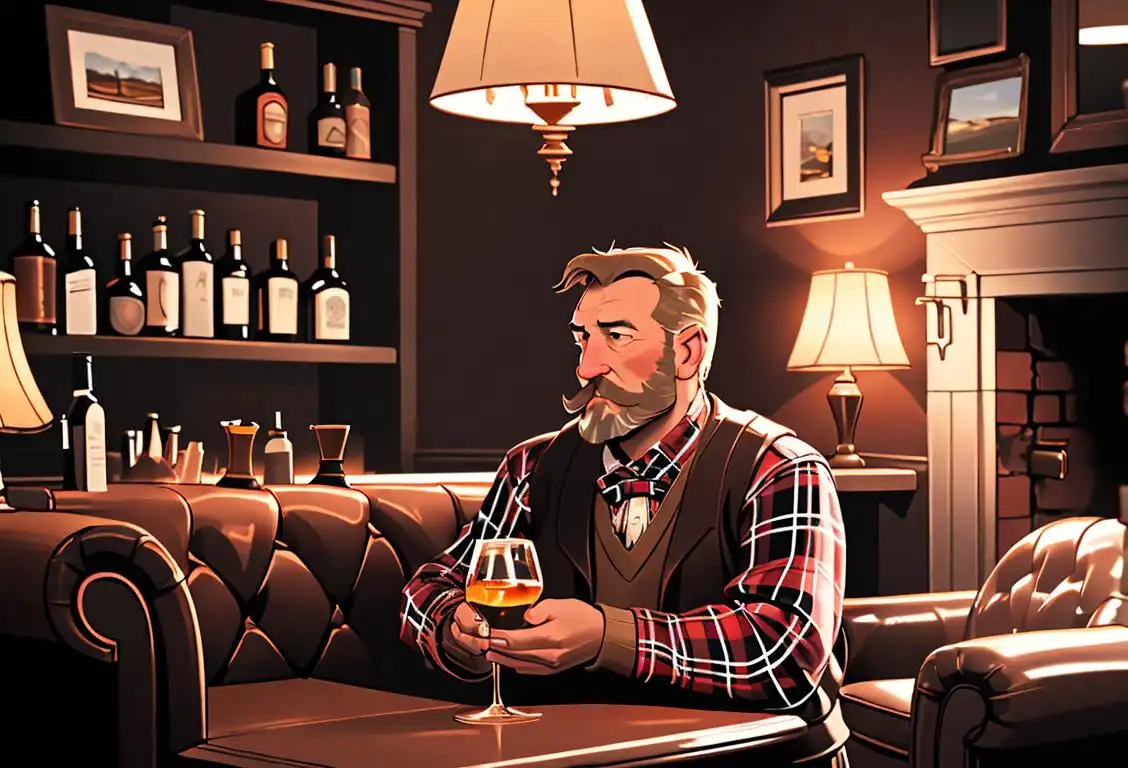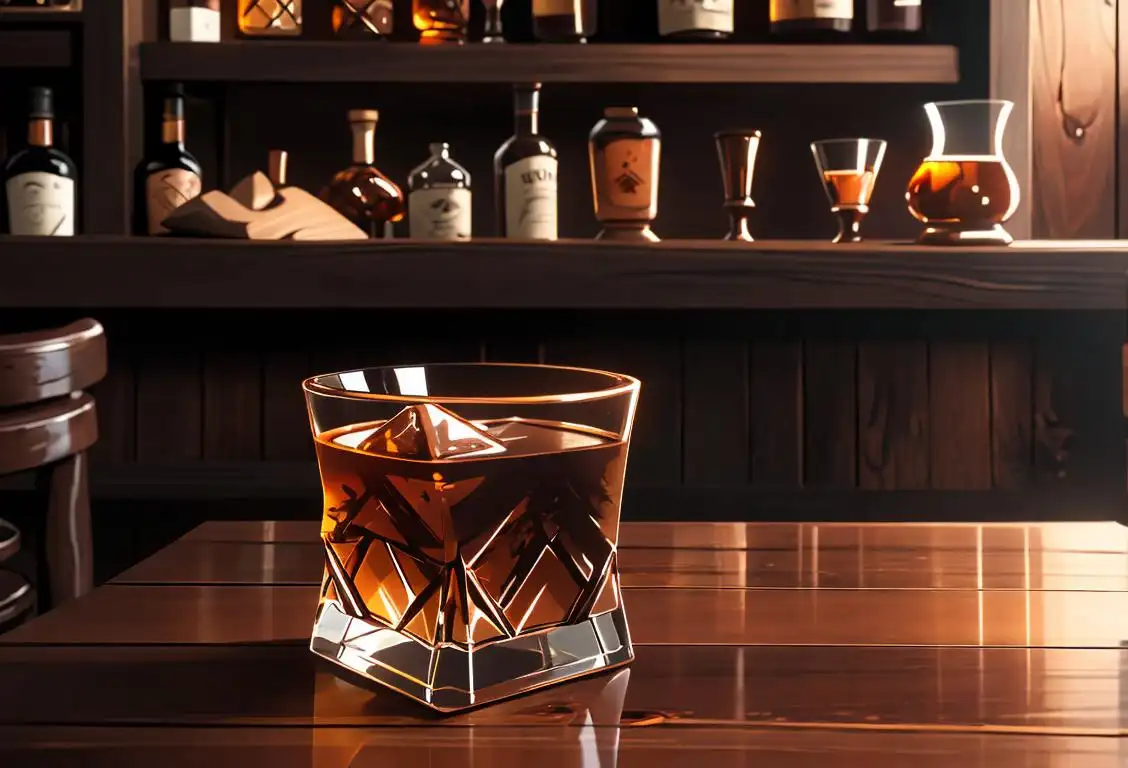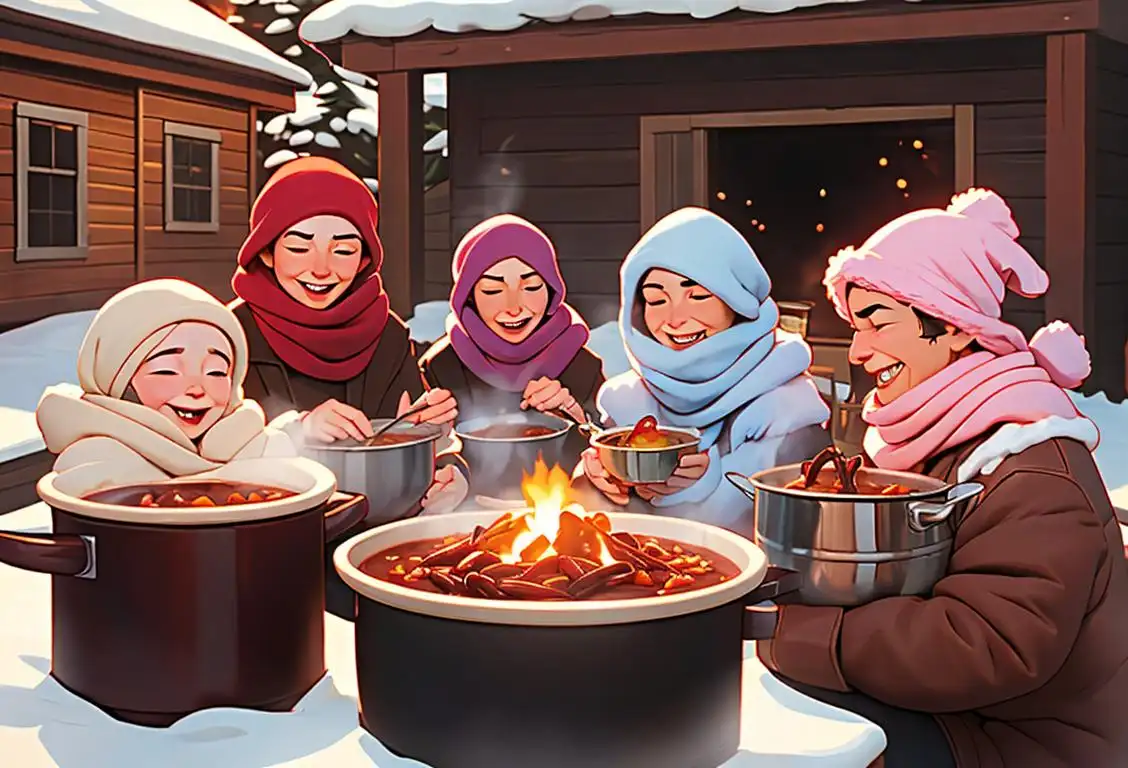National Beer Lovers Day
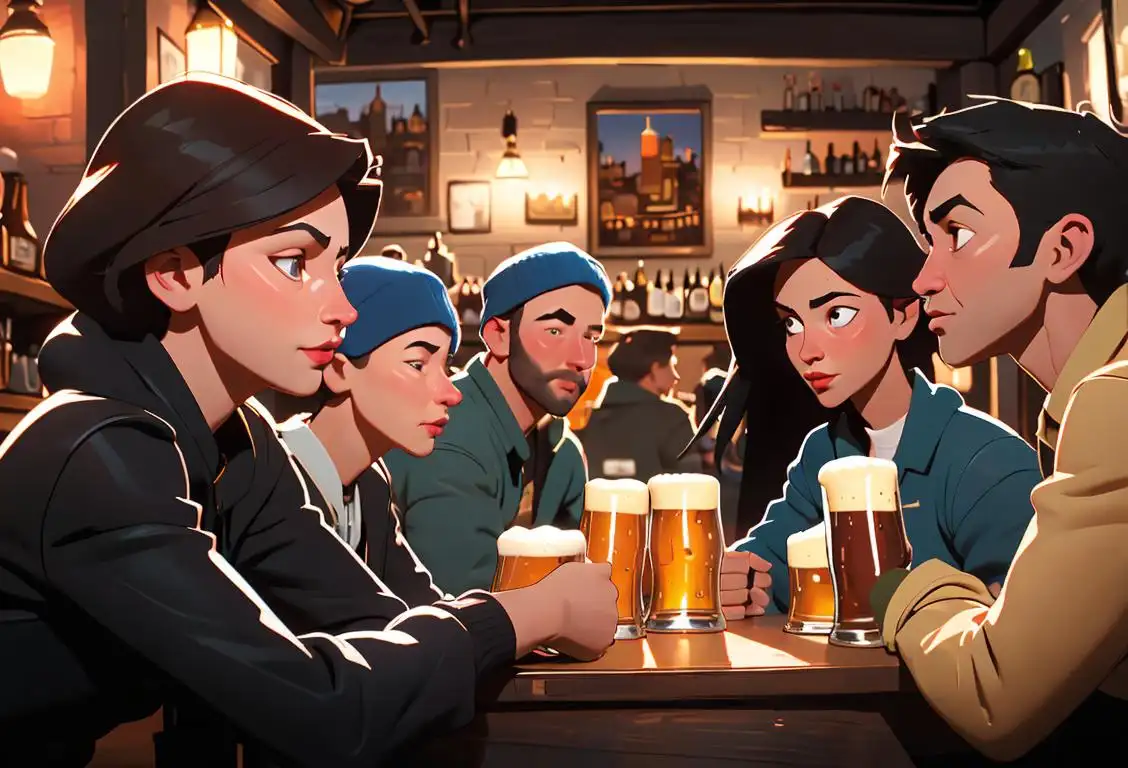
Grab a pint and cozy up, because today we are diving into the sudsy history of National Beer Lovers Day! A day when beer connoisseurs' and casual sippers alike can raise their glasses high in honor of one of the world's oldest and most popular beverages.
When is Beer Lovers Day?
It's national beer lovers day on the 7th September.
A Brewtiful History
Speaking of history, let's set our time-machines back to September 07, 2017, a date that marks the highest online mention of National Beer Lovers Day with a whopping 7988 instances! It's clear that this amber-hued holiday knows how to make a spectacle on the internet, much like that enthusiastic uncle at family reunions who just discovered craft beer.
But, where did National Beer Lovers Day come from? Well, much like the recipe for your favorite microbrew, the origins are a bit hazy. Some say it was started by a group of college friends who wanted to celebrate their shared love of hops and barley, others declare it was a marketing ploy by beer companies. While the origin might remain a mystery, the celebration is no doubt, universally loved and accepted, after all who doesn’t love an excuse to enjoy a cold brewski?
Frothy Celebrations
The fun part about this day is, there are no strict rules, except of course to drink responsibly. Whether it's cracking open your favorite domestic in your recliner, heading to your local watering hole with friends, or challenging your taste buds with an exotic new import, how you celebrate is up to you! Some zealous enthusiasts even go the extra mile to pair their beverages with delicious meals, making it a celebratory feast.
Further Pint...I mean, Point
While this day is definitely about enjoying and celebrating beer, it's also about appreciating the art and craft that goes into creating it. From the humble home-brewer to the mega beer corporations, hundreds of hours and countless efforts go into creating that golden, fizzy delight we all love.
History behind the term 'Beer Lovers'
4300 BCE
Ancient Beginnings
Beer brewing is thought to have originated around 4300 BCE, making it one of the oldest alcoholic beverages known to humanity. The early civilizations of Mesopotamia, such as the Sumerians and the Babylonians, were the first to cultivate barley and ferment it into beer. In these ancient societies, beer held both religious and nutritional significance, and it played an essential role in everyday life.
900s CE
Monastic Brewing
Beer brewing underwent significant development during the medieval period. Monasteries became centers of brewing knowledge and technique in Europe during the 900s CE. Monks meticulously brewed beer within the confines of the monastery walls, developing various styles and refining brewing methods. They often used herbs and spices to enhance the flavor of their brews, leading to the creation of new beer styles and varieties.
1516
German Purity Law
The year 1516 saw the enactment of the German Beer Purity Law, known as the Reinheitsgebot. This law, issued in the Duchy of Bavaria, dictated that beer could only be brewed using water, barley, and hops. This regulation aimed to preserve the quality and integrity of beer, protecting consumers from potentially harmful additives. The Reinheitsgebot played a crucial role in shaping the traditional German brewing techniques that are still respected today.
17th-18th century
Industrial Revolution and Lager Beer
The industrial revolution in the 17th and 18th centuries marked a significant turning point in the beer industry. Improved sanitation, mechanization, and the development of refrigeration techniques enabled the mass production and distribution of beer. This period also witnessed the rise of lager beer, which requires lower fermentation temperatures. Lager beer quickly gained popularity due to its light and crisp taste, and it remains one of the most consumed beer styles globally.
20th century
Craft Beer Movement
The late 20th century brought about a beer renaissance with the birth of the craft beer movement. Frustrated by the dominance of large commercial breweries, beer enthusiasts sought to reclaim traditional brewing practices and develop unique, flavorful beers. The movement gave rise to microbreweries and brewpubs, promoting experimentation with different ingredients and styles. Beer lovers became passionate about exploring the vast array of flavors and supporting local, independent breweries.
Did you know?
Did you know that beer is one of the world's oldest prepared drinks, with evidence of its existence dating back to around 3400-3500 BC? Now that’s a real #TBT (Throw Beer Thursday)!Tagged
fun celebration history beverage beer craftFirst identified
7th September 2015Most mentioned on
7th September 2017Total mentions
7988Other days
Beer Lovers Day
Beer Beer Day
Lager Day
Scoth Day
Bourbon Day
Martini Day
Hot Chocolate Day
Vodka Day
Umbrella Day
Chili Day
